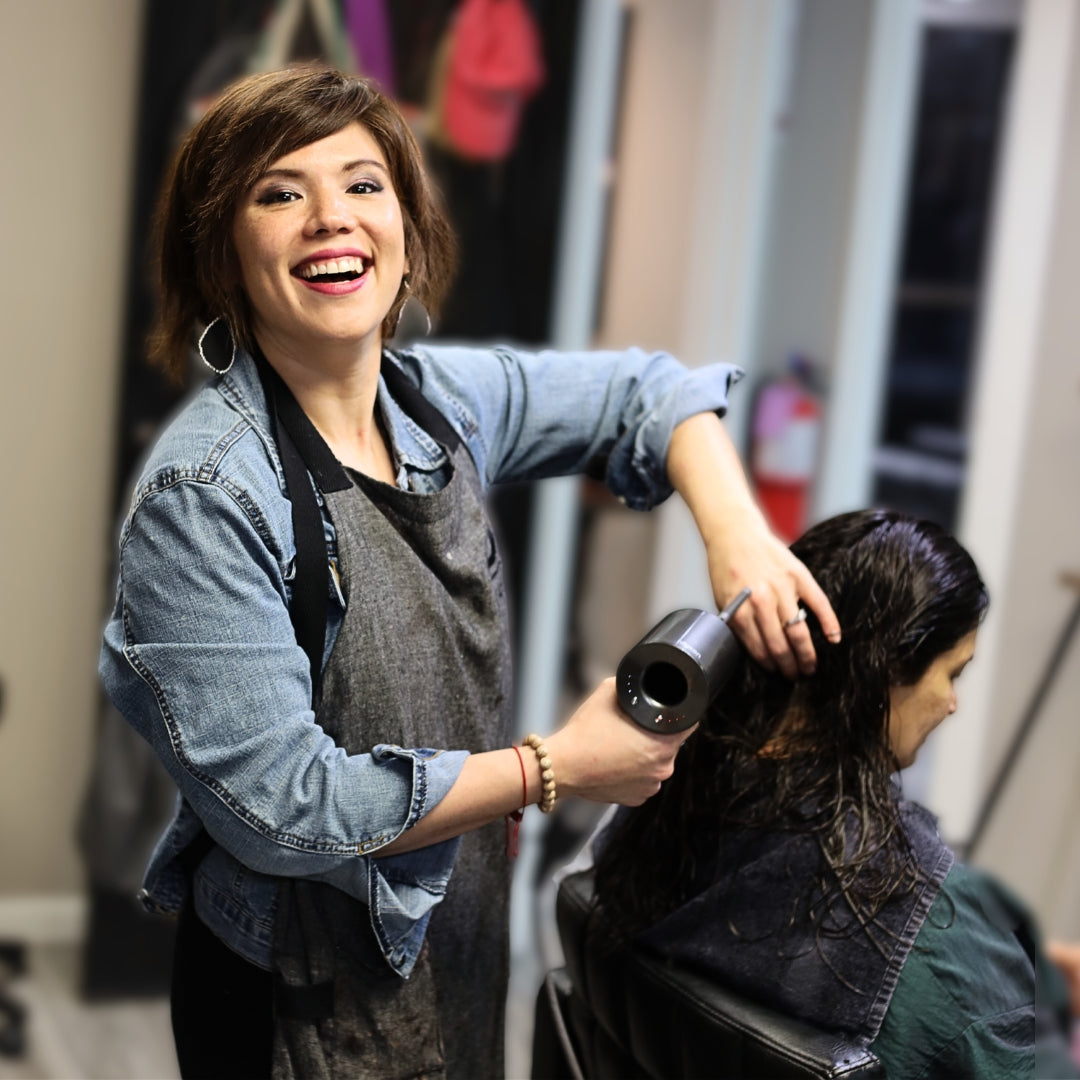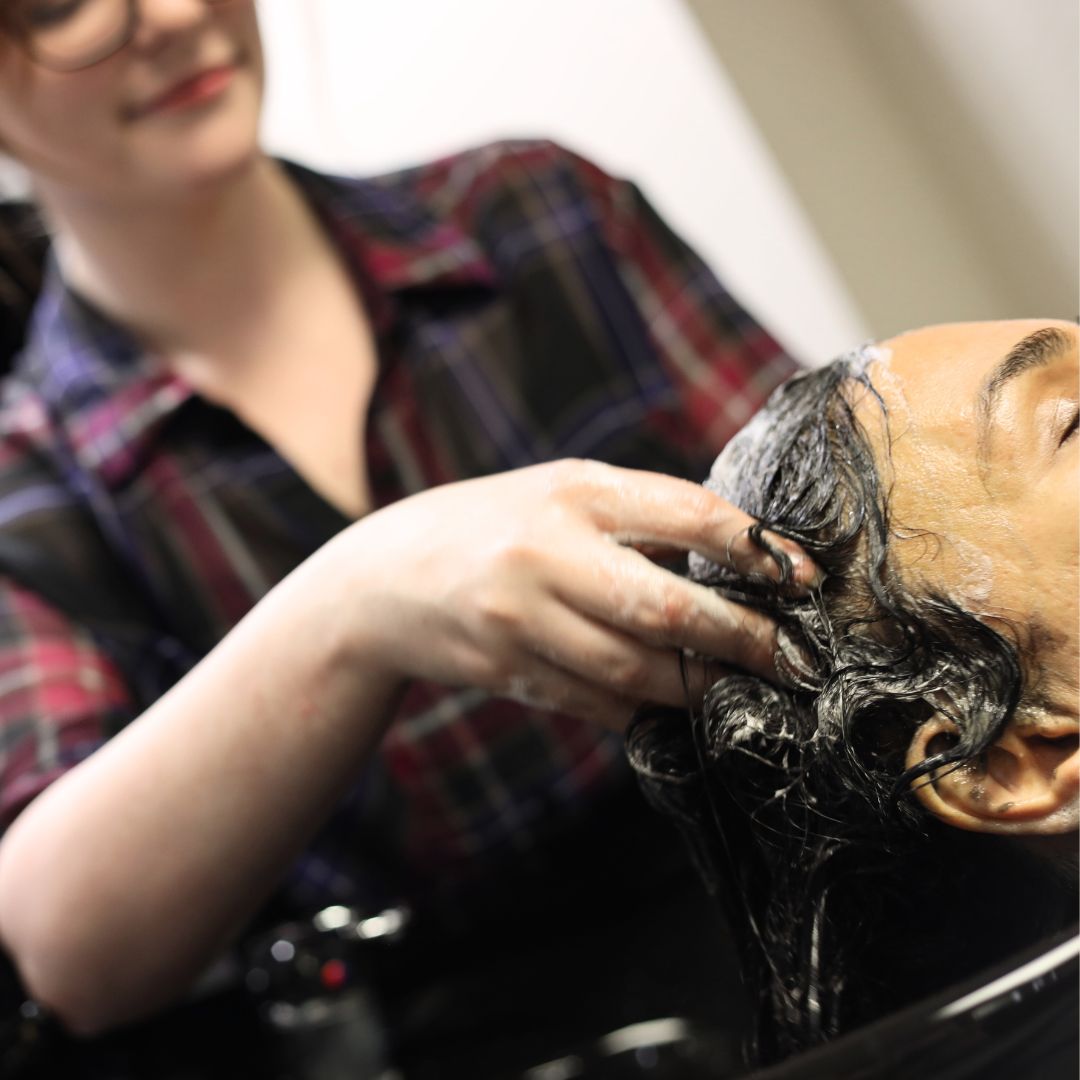Discover the Ultimate Conditioner for Your Hair Type

When it comes to finding the perfect conditioner for your hair type, there are a few key factors to consider. First and foremost, it is important to assess your hair's specific needs.
Take a moment to carefully evaluate whether your hair is dry and damaged, or perhaps oily and prone to buildup. Understanding your hair type is crucial in order to select the most suitable conditioner that will address your specific concerns and provide the desired results.
Once you have identified your hair type,In terms of hair types, there are four main categories:
- fine hair,
- normal hair,
- thick/coarse hair,
- coily hair.
Whether you are dealing with
- dryness and damage
- or excessive oiliness and buildup
There are conditioners available on the market that are designed to cater to your unique needs. These specialized conditioners often contain ingredients that work synergistically to combat the specific issues associated with your hair type.
These are the favorite go-to hair healers recommended by our experts, tailored to address specific needs based on your hair type.
Tips for fine hair

When it comes to fine hair, it's best to avoid using super heavy moisturizing conditioners. Instead, look for conditioners specifically designed for volume. These conditioners have less concentrated moisturizing agents.
Two options we recommend
You don't have to apply conditioner every time you wash your hair. You can choose to apply it once a week or as needed when the ends feel dry. If even that feels too heavy for your hair, you can skip the conditioner and use a light oil like the Ghost Oil from Verb after washing and towel drying your hair. Apply the oil only from the mid-shaft to the ends of your hair.
Home Remedies for Healthy Hair
If you want to enhance your hair, particularly if you have highlighted it, try using coconut oil or Amla oil(hair healer favorite) as a home remedy. Apply the oil from the middle of your hair shaft to the ends once a week, ensuring that your hair is dry before doing so. Afterward, shampoo your hair to remove the oil. This treatment will give your ends a healthy and moisturized appearance. If you choose this method, you can skip using conditioner because the oils will provide ample moisture without weighing your hair down.
Tips for Normal Hair types

Normal hair types are characterized by a balanced level of oil production, resulting in hair that is neither too oily nor too dry. For individuals with normal hair, it is important to choose a conditioner that provides lightweight hydration without weighing the hair down. Look for conditioners that offer gentle nourishment and enhance the natural shine and manageability of your hair.
Some recommended options for normal hair types include
Tips Normal hair is generally well-balanced and not too oily or dry. Here are some tips to keep your normal hair looking its best:
- Conditioner: Use a gentle conditioner specifically formulated for normal hair. Avoid products that are too harsh or heavy, as they can weigh down your hair.
- Frequency of Washing: Wash your hair every 2-3 days to prevent it from becoming too oily or dry. Over-washing can strip your hair of its natural oils, while under-washing can lead to buildup and dullness.
- Avoid Hot Water: When washing your hair, use lukewarm or cool water instead of hot water. Hot water can strip your hair of its natural oils and leave it feeling dry and brittle.
Home Remedies for Healthy Hair
If you want to enhance your hair, particularly if you have highlighted it, try using coconut oil or Amla oil(hair healer favorite) as a home remedy. Apply the oil from the middle of your hair shaft to the ends once a week, ensuring that your hair is dry before doing so. Afterward, shampoo your hair to remove the oil. This treatment will give your ends a healthy and moisturized appearance.
Tips for Thick/coarse hair types

Here are some helpful tips to make your hair care routine easier and more effective:
- Use a conditioner specifically designed for thick or coarse hair. These products will help to hydrate and soften your hair, making it more manageable.
- Avoid using heat styling tools too often, as they can further damage and dry out your hair. If you do use heat, always apply a heat protectant spray beforehand to minimize damage.
- Deep condition your hair regularly to keep it nourished and hydrated. Look for deep conditioning treatments that are specifically formulated for thick or coarse hair. When doing this make sure to purchase a shampoo that does have a milder ingredient that works similarly to shampoos that do have sulfates in them.
Most companies will state that there are no sulfates, but this is the ingredient that is another form of sulfate. Sulfates are used to break the surface tension of water which then creates a lathering effect to remove oil and dirt from your hair.
Look for the ingredient that contains this:
sodium c14-16 olefin sulfonate.
This is a gentle sulfate that will not irritate your scalp or hair. I highly recommend using it in your shampoo to remove any buildup from conditioners, deep conditioners, and styling products, and to keep your hair moisturized. It is important to keep your scalp clean to prevent hair thinning.
THis one really helps shampoos lather well, and gives a deep clean feel to the scalp.
These listed below are very common in over the counter shampoos and conditioners. But are very aggressive and can cause irritation from using them frequently. They do clean really well if you are someone that has a lot of build up. Just be cautious not to use it for long periods of time.
- Sodium laureth Sulfate
You can opt to use these types of shampoos and conditioners once a week to really deep clean your scalp.
- When styling your hair, use a wide-toothed comb or a brush with natural bristles to prevent breakage and minimize frizz. Avoid using fine-toothed combs or brushes with synthetic bristles, as they can cause damage to your hair.
By following these tips, you can ensure that your thick or coarse hair looks and feels its best. Remember to be patient and consistent with your hair care routine, as it may take some time to find the products and techniques that work best for you.
Tips for Coily Hair Types

Coily hair can be beautiful and unique, but it also requires special care. Here are some tips to help you manage and style your coily hair:
-
Moisturize regularly: Coily hair tends to be dry, so it's important to keep it moisturized. Use a leave-in conditioner or moisturizing cream to hydrate your hair and prevent breakage.
-
Hair healer favorite picks:
-
Use Clarifying Shampoo to Cleanse Your Scalp and Hair,( our favorite malibu un do goo) to ensure a thorough cleanse for your scalp and hair, it is recommended to use a clarifying shampoo once a month. If you regularly use moisturizing products without clarifying, you may experience a buildup of product residue. This buildup can potentially lead to hair loss, as explained by certified trichologist Terri Rehkopf, one of our hair healers.
- Detangle gently: Coily hair can easily become tangled, so be gentle when detangling. Use a wide-toothed comb or your fingers to remove knots and tangles, starting from the ends and working your way up.
- Protect your hair at night: To prevent frizz and breakage, wrap your hair in a satin or silk scarf before going to bed. This will help to retain moisture and keep your hair looking its best.
- Avoid heat styling: Coily hair is prone to damage from heat styling tools, so try to limit your use of flat irons, curling irons, and blow dryers. If you do use heat, use a heat protectant spray and keep the temperature low.
- Embrace protective styles: Protective styles like braids, twists, and buns can help to protect your coily hair from damage and promote growth. Just make sure not to pull your hair too tight, as this can cause breakage.
- Remember, everyone's hair is different, so it may take some trial and error to find the best routine for your coily hair. Be patient and experiment with different products and techniques until you find what works for you.
Remember to adjust the frequency of conditioner application based on your hair's specific needs.
In conclusion
Finding the perfect conditioner for your hair type involves considering a variety of factors. By assessing your hair's specific needs, looking for conditioners that target those concerns, and paying attention to the ingredients, you can ensure that you are selecting a conditioner that will provide the nourishment and care your hair deserves. So, take the time to understand your hair type and make an informed decision when it comes to choosing the right conditioner for you. Your hair will thank you!



